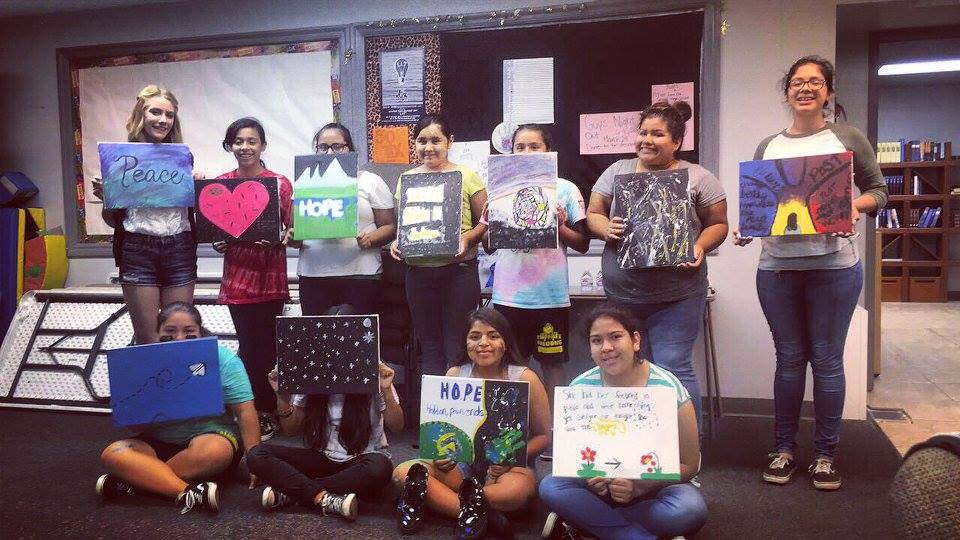This story was originally published in print on Oct. 4, 2018.
A program that allowed Torrey Honors Institute students to volunteer to work with underprivileged kids and young adults is facing downsizing, causing coordinators to look for other opportunities to help the community.
Torrey has partnered with Solidarity since 2013, giving students an opportunity to put their education to practical use while creating lasting relationships. Usually by sophomore year, Torrey students have the option to participate in a 40-hour service learning project in place of their Torrey paper at the end of the semester.
“I was a participant in my sophomore fall and it was very humbling for me because going into it, I’m a global student, and I thought that I didn’t really have anything to learn from intercultural competencies,” said junior business major Lydia Batanghari.
In the past, students have assisted students with academic guidance. With roughly a quarter of Torrey students opting to work with Solidarity, the nonprofit organization has become fairly popular among the institute. Financial circumstances have led Solidarity to downsize that program.
MAKING AN IMPACT
Solidarity provides a number of services to the Fullerton area. With locations in the Garnet and Maple neighborhoods, the organization primarily works with Latino families with the goal of “fighting mediocrity and living for the person that God intended them to be,” according to Solidarity executive director Kevin Mo-Wong. In an area heavily influenced by gang activity, Mo-Wong has personally worked with mentees involved in gangs, which he says has helped him gain a better understanding of discipleship and the kingdom of God.
Because of recent budgetary restrictions, the academic after-school program with which Torrey students normally work has had to undergo some changes that will make it more of a community-driven model.
“The staff that we had employed, we’ve cut down. The program is still existing, but it’s a scaled down version of it. Now it’s being run by the neighborhood,” Mo-Wong said.
Although the academic after-school program is being downsized, Solidarity is making some major changes to one of its programs, called IMPACT, which Torrey students will be able to be a part of. IMPACT has been around for four years and continues to serve its community through mentoring and discipleship.
“IMPACT is changing a bit in the way that we do it. Before it was just purely one-on-one mentoring, now there’s a lot more of a group dynamic we are adding to everything… There’s also opportunity if they want to get involved with the younger ones after school,” Mo-Wong said.
Even with such changes, Torrey Solidarity academic advisor Mark Makin actually expressed his enthusiasm and optimism for the future relationship between Torrey and Solidarity.
“I’m actually pretty excited about this change because I think it will allow for personal relationship and more opportunities for discipleship. I think this will lead to relationships that last well beyond the nine weeks,” Makin said.
MAKING EDUCATIONAL AND RELATIONAL CONNECTIONS
In October, Torrey students will begin the first nine-week service experience through IMPACT. The experience closely mirrors the Torrey curriculum as they go through literature and discussion referred to as “on community.” By engaging with a community outside of Biola, students are able to better understand the elements discussed in class while connecting with people they might not normally encounter.
“Academic service learning is a way of integrating both the academic experience in the classroom with the community service experience so that both are informing one another,” said Makin. “You’re frequently engaging with perspectives, experiences and worldviews that are radically different from your own, that you may have difficulty understanding.”
Senior and former Torrey Solidarity coordinator Elizabeth Vrinten expressed how her experience helped widen her worldview.
“I come from a context where I am white, upper-middle class and then I go into a neighborhood where it’s primarily Hispanic and Latinos. It’s just very different from anything I’ve ever experienced and it really helped to undo a lot of my preconceived notions, especially growing up in a fairly conservative household, of what the immigrant family looks like,” Vrinten said.







